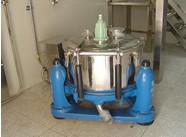- Min.Order :1 Kilogram
- Purity: 99%
- Payment Terms : L/C,T/T,Other
Keywords
Valsartan manufacturer 6990-06-3 Fusidic acid supplier
Quick Details
- Appearance:White to beige
- Application:Local anesthetic; Pharmaceutical intermediate; Research chemical
- PackAge:25KG/DRUM
- ProductionCapacity:10000|Kilogram|Year
- Storage:2-8°C
- Transportation:General cargo transport
Superiority:
Hanways Chempharm Co., Limited, the former is Hubei Hanways Pharchem CO.,Limited, set up in 2009 in Wuhan, China. We specialize in sourcing and supplying APIs, pharmaceutical intermediates, and fine chemicals for worldwide markets.
The founder has decades experience in pharmaceutical industry. We are not just a trading company, but a comprehensive solutions supplier. With our sound knowledge of pharmaceutical business, to integrate resource and adapt to all different demands of markets is our advantage. We are a small but dynamic and energetic company with high efficient and high flexible decision making system.
Our products cover oncology APIs and intermediates, antiviral APIs and intermediates, cardiovascular APIs and intermediates, hormones APIs and intermediates and so on. Cater to the developing of pharmaceutical industry, we focus on the niche and new compounds.
Our business philosophy is customer-oriented, reliability and trustworthy, better service and win-win. We will take every effort to supply quality products to seek mutual development and benefits.
Details:
Brief Description
|
Product name |
Valsartan |
|
Synonyms |
fusidic acid; Fusidine; 16-(Acetyloxy)-3,11-dihydroxy-29-nordammara-17(20),24-dien-21-oic acid |
|
MOQ |
25KG |
|
CAS No. |
137862-53-4 |
|
Appearance |
An almost white powder |
|
Molecular Formula |
C31H48O6 |
|
Molecular Weight |
516.7092 |
|
Assay |
99% |
|
Application |
Pharma grade or research purpose |
|
Packing |
As per your request |
|
Storage |
Preserve in tight, light-resistant containers in a cool place |
|
Remarks |
NA |
|
Custom synthesis |
Available |
|
Supply Ability |
10000kg/month |
Medical use
Fusidic acid is active in vitro against Staphylococcus aureus, most coagulase-positive staphylococci, Beta-hemolytic streptococci, Corynebacterium species, and most clostridium species. Fusidic acid has no known useful activity against enterococci or most Gram-negative bacteria (except Neisseria, Moraxella, Legionella pneumophila, and Bacteroides fragilis). Fusidic acid is active in vitro and clinically against Mycobacterium leprae but has only marginal activity against Mycobacterium tuberculosis.
One important clinical use of fusidic acid is its activity against methicillin-resistant Staphylococcus aureus (MRSA). Although many strains of MRSA remain sensitive to fusidic acid, there is a low genetic barrier to drug resistance (a single point mutation is all that is required), fusidic acid should never be used on its own to treat serious MRSA infection and should be combined with another antimicrobial such as rifampicin when administering oral or topical dosing regimens approved in Europe, Canada, and elsewhere. However, resistance selection is low when pathogens are challenged at high drug exposure. An orally-administered mono-therapy with a high loading dose is under development in the United States.
Topical fusidic acid is occasionally used as a treatment for acne vulgaris. As a treatment for acne, fusidic acid is often partially effective at improving acne symptoms. However, research studies have indicated that fusidic acid is not as highly active against Propionibacterium acnes as many other antibiotics that are commonly used as acne treatments. Fusidic acid is also found in several additional topical skin and eye preparations (e.g. Fucibet), although its use for these purposes is controversial.
Fusidic acid is being tested for indications beyond skin infections. There is evidence from compassionate use cases that fusidic acid may be effective in the treatment of patients with prosthetic joint-related chronic osteomyelitis.
Our Factory:



You Might Also Like
Related Searches
About|Contact|Cas|Product Name|Molecular|Country|Encyclopedia
Message|New Cas|MSDS|Service|Advertisement|CAS DataBase|Article Data|Manufacturers | Chemical Catalog
©2008 LookChem.com,License: ICP
NO.:Zhejiang16009103
complaints:service@lookchem.com Desktop View